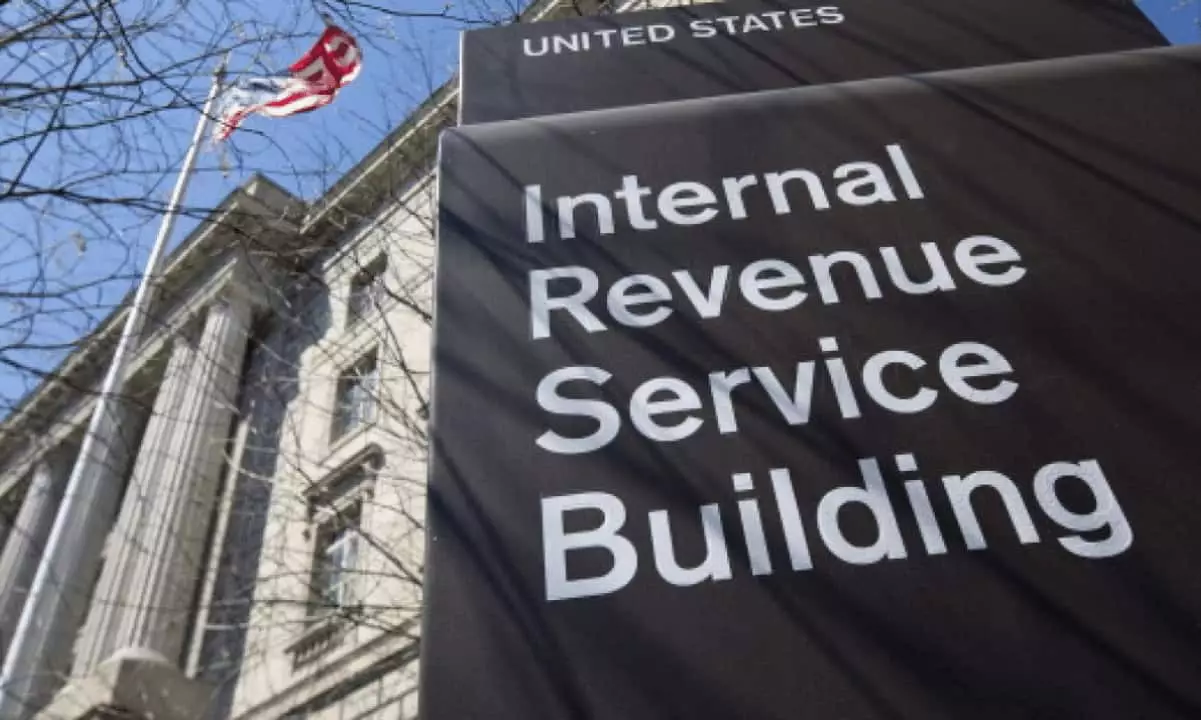The cryptocurrency landscape is rapidly evolving, particularly as regulatory frameworks attempt to keep pace with innovative financial technologies. In this context, the Internal Revenue Service (IRS) of the United States has recently announced a temporary relief measure aimed at easing tax-related pressures for those engaging with centralized finance (CeFi) brokers in 2025. This move serves as a response to the complexities introduced under Section 6045 custodial broker regulations, which are slated to come into effect on January 1, 2025.
Section 6045 places new reporting obligations on CeFi brokers, enforcing that they disclose cryptocurrency transactions while adhering to distinct accounting protocols for asset disposals. Shehan Chandrasekera, a prominent figure at CoinTracker, elaborated on the implications of this regulation through various communications, emphasizing the challenges it inherently carries for cryptocurrency holders. A significant point of contention is the default accounting method brokers will employ if users fail to select their preferred option. The default method, First In, First Out (FIFO), operates by selling the earliest acquired assets first—often those which carry a lower cost basis—potentially inflating tax liabilities, particularly during periods of market rallying.
This dynamic has raised concerns among investors who may unwittingly find themselves liable for larger tax bills due to the arbitrary nature of FIFO transactions. Additionally, many CeFi brokers struggle to support more nuanced accounting methods such as Highest In, First Out (HIFO) or Specific Identification (Spec ID), compounding potential confusion for taxpayers.
In light of these hurdles, the IRS has introduced Notice 2025-7, which extends temporary relief for cryptocurrency sales executed on CeFi platforms throughout 2025. This provision empowers users to bypass the obligatory FIFO method by utilizing their own transaction records or by leveraging crypto tax software to designate which assets are being sold. Importantly, taxpayers do not need to undertake any immediate actions to avail themselves of this automatic relief.
Nevertheless, the reprieve will cease at the end of 2025, as strict parameters will become necessary starting January 1, 2026. At this point, users will be mandated to elect a specific accounting method in collaboration with their brokers, thus avoiding the pitfalls associated with the default FIFO approach. By this deadline, it is anticipated that a majority of CeFi brokers will have improved their systems to accommodate a range of accounting methods, thereby enhancing tax compliance for their clients.
In navigating this transitional period, cryptocurrency holders are encouraged to maintain meticulous records of their transactions or utilize reliable crypto tax software to facilitate accurate reporting. Failure to do so could thrust them back into the unforeseen complexities of FIFO sales. Chandrasekera has astutely advised users to plan pre-emptively, ensuring that their chosen accounting method aligns with the framework offered by their broker’s capabilities. This foresight can potentially mitigate discrepancies that would otherwise exacerbate tax obligations.
The issuance of IRS Notice 2025-7 comes on the heels of broader regulatory shifts regarding broker reporting, underlined by the Infrastructure Investment and Jobs Act. Recently, the IRS’s broadened definition of “broker” to encompass decentralized finance (DeFi) platforms has drawn considerable scrutiny. Legal challenges mounted by prominent crypto entities such as A16z Crypto and the DeFi Education Fund underscore concerns regarding the legal constitutionality of these regulations. Opponents argue that the rapid implementation violates the Administrative Procedure Act and encroaches on treasuries’ jurisdiction.
As the regulatory environment surrounding cryptocurrency continues to mature, stakeholders must remain vigilant and engaged. With both challenges and opportunities on the horizon, strategic planning and informed decision-making will become integral for individuals navigating their financial futures in this innovative domain. The IRS’s recent measures are just one part of a larger narrative, highlighting the importance of adaptability in the face of changing financial landscapes.














